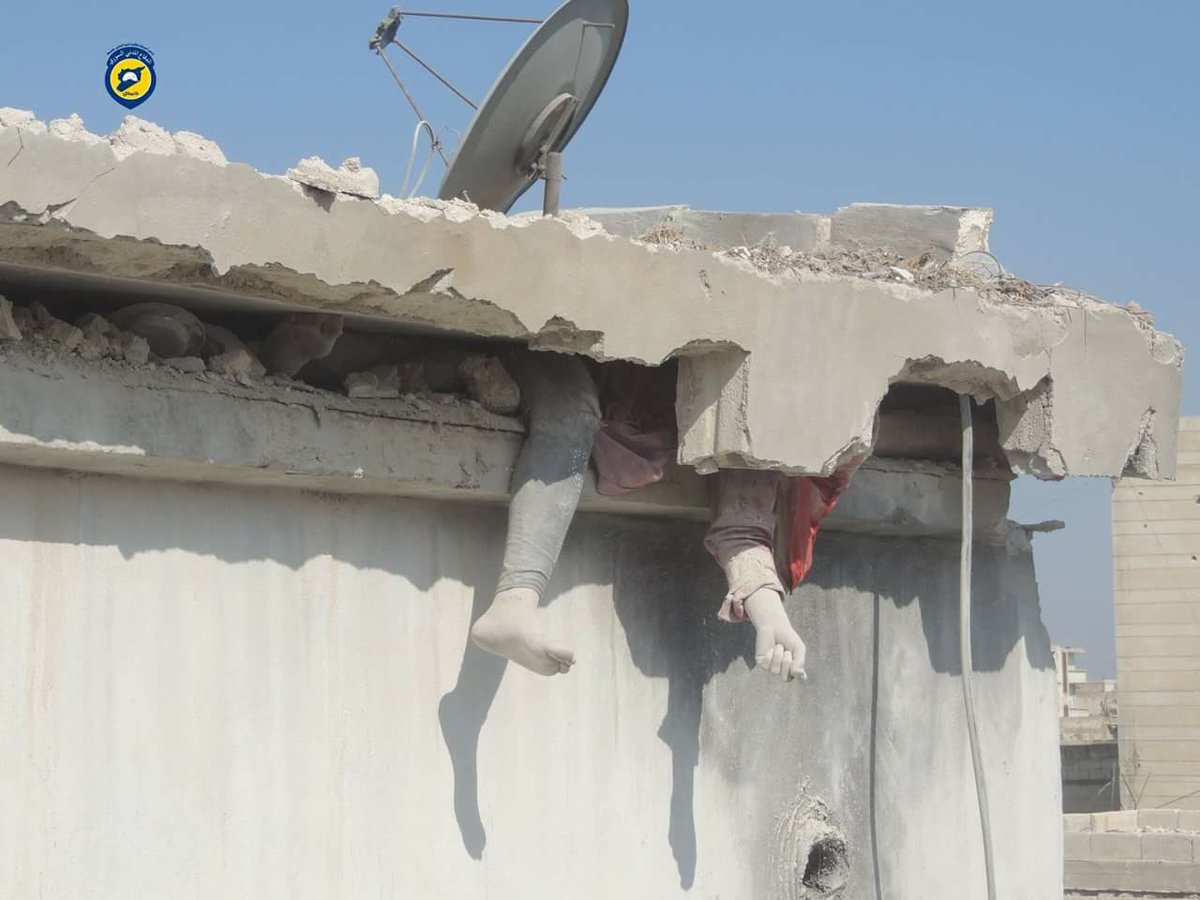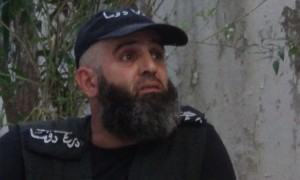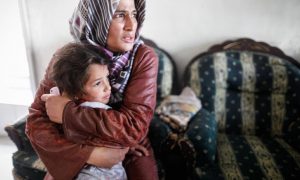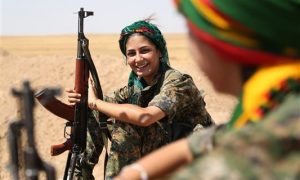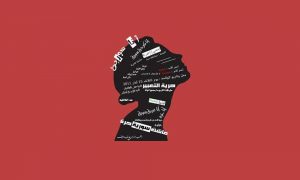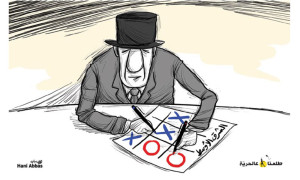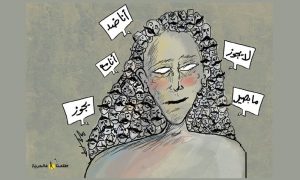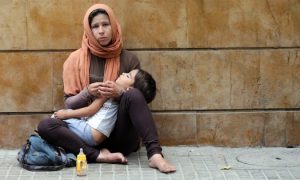Hanadi Zahlout
10 September 2016
The image of the woman in Rastan who was crushed under the roof of her home after an airstrike is but a condensation of the tragedies that have befallen Syrian women over more than 5 years. Her sole crime was that she chose to stay and protect her family, and she perished for it. Other women who were lucky enough to get out of the siege with their families are not so sure they fared better as their wretched refugee tent, offering no protection from winter’s bitter cold and summer’s scorching heat, has turned their lives into a chapter from the book of misery of an entire people.
These women have suffered from lack of water and food, and their children from lack of education. Many campaigns were launched to provide them with winter gear, but the continuous hemorrhaging of Syrian refugees made the demand ever so high and further increased their suffering. Though many of them did not have the necessary education or qualifications, they still did whatever necessary to provide for their families, much like attempting to fashion a lightbulb out of shattered glass and a few barb wires.
In spite of all the hurdles, Syrian women rose up to the challenge. They built schools in refugee camps and the educated among them volunteered to teach a generation of war and displacement, trying to coax smiles from tear-chapped lips. Many of them -aided perhaps by hope only- succeeded in getting children to leave memories of massacres, blood, guns, and rubble behind them, and play under sunshine and rainbows.
Syrian women could feel not only the effects of a bitter economic reality, but also the stalking eyes of oglers. Human trafficking proliferated and took many faces: Sometimes in the name of saving them from their situation, and many other times through child marriage (A crime) under the same pretense, instead of trying to improve their circumstances and their capacities. Inside their tents in host countries they swing wildly between longing and exhaustion. Some were forced to leave their dream homes that they built and furnished one piece at a time. Today they sit and recall those homes brick by brick, tile by tile, and ask neighbors to keep an eye on them. Their hearts shatter upon hearing of a rocket or a mortar tearing through them.
It is also heart wrenching for many other women when they can’t prepare a certain meal for their children, or when they see the longing in their eyes for the toys and the dreams they once had. Those dreams may have evaporated in this hellish endless war. Some lost a husband: Martyred, detained, or disappeared, and found themselves filling the shoes of mother, father, sister, and brother. They had to be both tender and manly under difficult circumstances that kept them from their loved ones, and put them face to face with a reality they had no time to prepare for.
However, the success we see of many Syrian students in their countries of refuge indicate that there are women who turned their weaknesses into strengths, and worked hard to make up for the absence of their children’s father. They kept his memory alive in their children’s hearts and turned it into incentive for them to shine in arts and sciences.
On the other hand, the current situation of the war has complicated human relations tremendously. The challenges of raising children are magnified along with the fear that they would be dragged into crime and mischief . It has also emphasized higher values such as love, justice, and equality. Many women now realize the injustice they may have unwittingly inflicted upon their daughters, as well as the discrimination they experienced, and in turn exposed their daughters to.
It was only natural to eventually see a rise in divorce cases among Syrian women who found themselves footing the heaviest bill in this new reality. They still suffered the same discrimination they did in Syria. The difference today is their new-found awareness of the rights afforded to them by their new societies to separate if they sense harm in their relationships. With the rise of such awareness, Syrian women’s view of themselves, their suffering, and how to handle their problems have undoubtedly changed. Reality still imposed a heavy emotional toll on them, making their reactions vary from emotional to rational as would be expected. Those rights that Syrian women realized are the same ones they needed before the revolution, but experience and maturity have allowed them to practice them today.
Add to that the fact that despite the heavy involvement of women in law, media, and aid, in addition to family matters, legal and political committees in general -short on women’s participation- do not adopt citizenship at their core. Syrian women’s rights are still viewed as an intellectual luxury and misplaced prestige citing photos of daily death and systematic killing of women, men, and children. Nonetheless, the fact is that previously detained Syrian women suffer through a certain social scrutiny that their male counterparts don’t, and women in politics are also subject to more social scrutiny than men, simply because they are women.
If Syria today needs transitional justice, then more than half its society -perhaps even all of it- ought to demand it while also working on restoring order, promoting citizenship, and abolishing discrimination based on race as well as sex.
Translated by Dima Alghazzy

